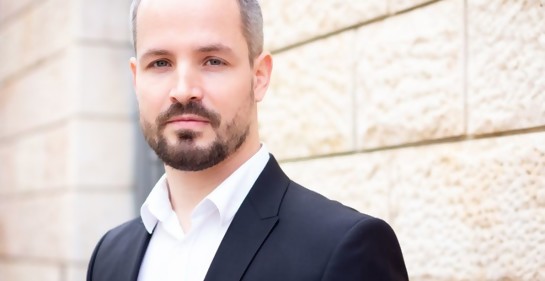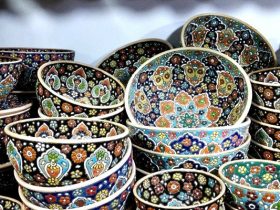No products in the cart.

Lutz Langer was a German neo-Nazi who hated blacks, immigrants and, above all, Jews. Today he is called Yonatan Langer, he lives in Israel and is a religious Jew who prays three times a day and works in a kabbalah center.
When Lutz was 12 years old, his parents, who had moved from Saxony to East Berlin, decided to send him to karate classes to find a place of belonging linked to the sport. However, what he found was a professor who sponsored him in the neo-Nazi ideology, along with some colleagues.
“It all started with the music,” he explains, recalling the feeling he had the first time listening to a neo-Nazi song: “It was provocative, a way to stand out from people’s mediocrity, from normality.”
To these melodies, whose lyrics they memorized together, were added vindictive texts of the Holocaust that his coach, who frequently invited him to his house, read to him while they drank beer or cut his hair.
The group that left the karate classes became stronger and over time they were incorporating flags, medals, boots and even uniforms.
“Our group was called Vigrid, after a place mentioned in German mythology. We had a space and a table where we all sat in leather suits and surrounded by torches,” says Langer.
They soon began to associate with skinheads, motorcycle clubs, violent fan groups, murderers and criminals.
“We had access to weapons and we considered carrying out attacks, but we measured the consequences and we did not,” he remarks, although they did beat immigrants on the street or enter restaurants with foreigners where they destroyed everything in their path.
His hatred, Langer emphasizes, was against everything different but mainly against Jews. That is why they did not eat at McDonald’s, they did not watch Hollywood movies or drink Coca Cola, because of the relationship they established between the United States and the United States.
Yonatan’s departure from the group, then still Lutz, began during college: “I started to change, because I was more involved in society and it was no longer so easy to say things like ‘I don’t have black or immigrant friends’,’ not like in this or that restaurant for being a foreigner ‘or’ I don’t see these movies because they have Jewish producers. ‘
Over time, he began to feel more out of place and, at the age of 24, the occasional immigrant friend and a college degree in business administration, Yonatan’s internal conflicts led him to investigate the spiritual side of him.
This internal search, which took place while he was still frequenting the neo-Nazi group, led him to discover films such as “The Secret” and books by the spiritual guru Osho, until he ended up in the Kabbalah, an esoteric school of thought linked to Judaism.
This is how he came to the Kabbalah Center in Berlin and, after a few encounters, immersed himself fully in his teachings.
His teacher, born in Israel and the son of Holocaust survivors, welcomed him without prejudice despite his Nazi ideology.
“I connected with the content of his words, I was ignorant of his Jewish religion”, he points out and is grateful to have been received with love and to be taught that he could be different.
A Shabbat (traditional Jewish dinner) dinner at the teacher’s home was a turning point.
“It was an intimate meal, for six or seven people, full of joy, enthusiasm and positive energy. I didn’t know what I was doing but I was clapping and singing,” Yonatan mentions and recalls the confusion he felt just a week later, when he met with his neo-Nazi group and again heard songs that promoted hatred of Jews.
From that moment on, he decided to permanently distance himself from the group and the neo-Nazi ideology and deepened his ties with the world of the Kabbalah, an esoteric Jewish doctrine, which led him to move to London to work there in a Kabbalistic center.
In England he took care, among other things, of organizing religious events such as prayers and celebrations of the Passover and Jewish New Year, until at the age of 29, and after his first visit to Israel, he decided to begin the process of conversion to Judaism, He changed his name to Yonatan and was circumcised.
Earlier this year, after a stint in Berlin, he received a proposal to work at the Kabbalah Center in Tel Aviv, where today he lives and lives a full Jewish life that includes wearing a kippah (Jewish skullcap), wearing traditional fringes, praying. three times a day and abstain from sexual intercourse before marriage.
“I love Israel, but being here implies opening up and going through a hard process for me, which includes a lot of pain and frustration,” acknowledges Langer, because, although at 35 he has been away from neo-Nazi ideology for more than ten years, radically changing his opinions entails time, to the point that it wasn’t until last year that he was able to condemn the Holocaust.
What’s your reaction?
Love0
Sad0
Happy0
Sleepy0
Angry0
Dead0
Wink0










